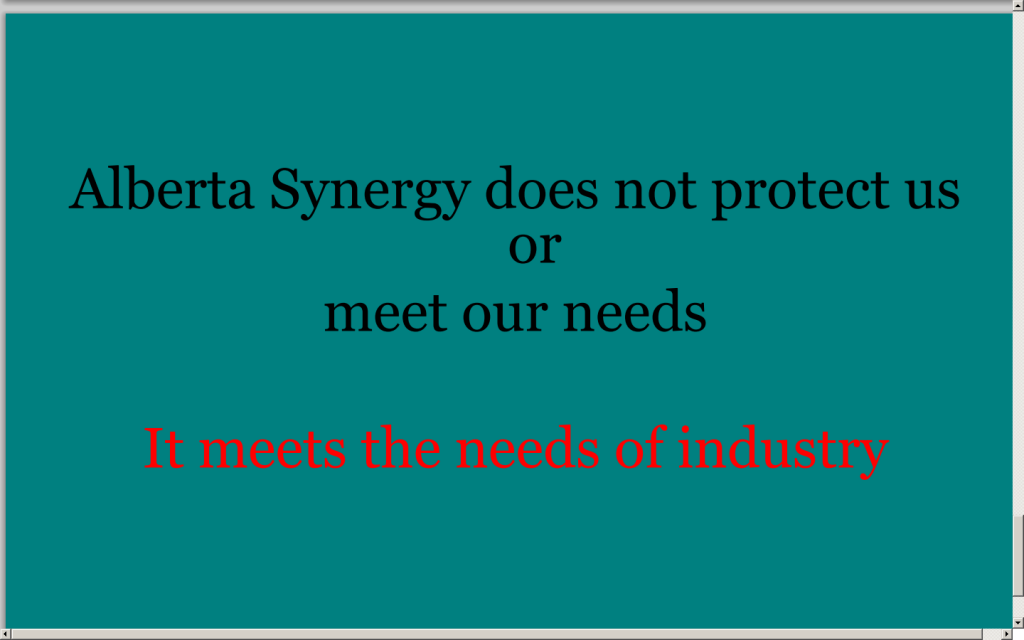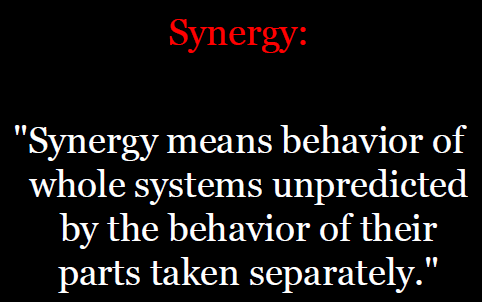
This is a post I did in 2022 but didn’t publish. Synergizing deceptions by NGOs are brutal for me to watch play out and endure. NGOs caused more harm to me, smearing me and my case, than the defendants in my lawsuit did. In Alberta, NGOs synergize to serve Encana, AER, Alberta Environment and other frac’ers in exchange for donations (read their annual reports for the gritty details).
I published this old frac fuckery by Colorado today, Jan 30, 2024, because of PA Gov Josh Shapiro synergizing with CNX, copying it:

My 2022 post:
When I went to the Serra Club’s June 17, 2022 press release online, first thing that popped up was asking me for money.
This is untrue in Sierra Club’s press release:
And it requires those manufacturers to certify to the Colorado Oil and Gas Conservation Commission that no products used in Colorado extraction operations contain hazardous and toxic PFAS “forever chemicals.”
“Accidentally” adding PFAS’s is allowed. You can bet your sweet donations there will be plenty of accidental and intentional “accidents” making frac mixes. If this new law truly prevented trade secrets (which the industry and the rich will never allow because outlawing trade secrets would give litigants the details they need to win their lawsuits), there is no need to make it legal for companies to add PFASs accidentally.
A real law would say:
The discloser must add no perfluoroalkyl or polyfluoroalkyl chemicals, by accident or intentionally.
Instead of this loopholey fluff:
The discloser must also provide the commission with a declaration that the chemical product contains no intentionally added perfluoroalkyl or polyfluoroalkyl chemicals.
This bit in Sierra’s press release is also untrue:
It prevents chemical manufacturers from claiming trade secret protections for the individual chemicals used to make fracking and drilling fluids.
And the quote below from the press release contains two falsehoods in one. How will the amended bill give industry better compliance? We all know companies break the law with impunity with regulators both sides of the border enabling it, even engaging in fraud to do so. As usual, relating to anything regulating frac’ers and the oil and gas industry, the law got watered down; I sent the watered down details to Sierra Club, PSR Colorado and other NGOS; media reported on it too:
Representative Meg Froelich:
“The industry will have better compliance with existing reporting requirements and will no longer be able to hide potentially dangerous chemicals from the public via a ‘trade secret’ exemption.”
Below quote not directly untrue, but not true either. I expect companies have already filed exemption requests to COGCC, to allow trade secrets:
Understanding what chemicals are on site will help to ensure that first responders have adequate protective gear and that medical personnel can diagnose and treat symptoms from chemical exposure rapidly,” said Representative and Doctor Yadira Caraveo.
Wow, openly admitting synergy in this quote:
“From here we will work with the Colorado Oil and Gas Conservation Commission to properly implement the law and protect our communities and the environment,” said Ramesh Bhatt, Sierra Club, Colorado Chapter Conservation Chair.
In my frac’d view, and after years of experiencing NGOs, companies, politicians and AER trying to con me into synergizing for them, to “work with them” to enable unlawful fracs in nearly identical ways, it seems Colorado’s last minute amendment allowing trade secrets and accidental PFAS chemicals is more about conning the public and keeping donations rolling in for NGOs.![]()
FOR IMMEDIATE RELEASE June 17, 2022 CONTACT: Ramesh Bhatt, Sierra Club of Colorado Conservation Chair, email hidden; JavaScript is required Gabby Brown, email hidden; JavaScript is required View as webpage Colorado Leads the Nation in Protecting Communities through Oil and Gas Operation Chemical Disclosure Bill Denver– On Wednesday, June 8th, Governor Polis signed House Bill 22-1348 <https://leg.colorado.gov/bills/hb22-1348>, the “Oversight of Chemicals Used in Oil and Gas Production”. This transformative policy was championed by Representatives Meg Froelich and Yadira Caraveo and Senator Faith Winter. HB22-1348 improves transparency by requiring public disclosure of all chemicals used in downhole operations of oil and gas production - a first-in-the-nation achievement. It prevents chemical manufacturers from claiming trade secret protections for the individual chemicals used to make fracking and drilling fluids. And it requires those manufacturers to certify to the Colorado Oil and Gas Conservation Commission that no products used in Colorado extraction operations contain hazardous and toxic PFAS “forever chemicals.” Research by Physicians for Social Responsibility <https://www.psr.org/blog/physicians-group-uncovers-evidence-that-forever-chemicals-pfas-have-been-used-in-colorados-oil-and-gas-wells-full-extent-of-use-obscured-by-thousands-of-trade-secret-claims/> found that Colorado, like most states, was failing to receive information about the names of chemicals used in the oil and gas industry, with more than 400 million pounds of mystery chemicals injected in the sub-surface of Colorado over a ten-year period. All three pieces of HB22-1348 dramatically improve transparency at the nexus of public health and oil and gas operations in Colorado. “Coloradans deserve to know what chemicals oil and gas operators are putting in the ground in our communities,” said *Representative Meg Froelich*. “The industry will have better compliance with existing reporting requirements and will no longer be able to hide potentially dangerous chemicals from the public via a ‘trade secret’ exemption.” “First responders and medical professionals will now have the opportunity to prepare and plan for accidents and or spills that occur at oil and gas operations. Understanding what chemicals are on site will help to ensure that first responders have adequate protective gear and that medical personnel can diagnose and treat symptoms from chemical exposure rapidly,” said *Representative and Doctor Yadira Caraveo*. “Colorado is a beautiful place to live and our water resources, which are increasingly threatened by climate change, are precious,” said *Senator Faith Winter*. “HB22-1348 helps to protect our water from forever chemicals like ‘PFAS’ and other cancer-causing toxins. It ensures that future Coloradans will have water that is drinkable, fishable and swimmable.” “I am grateful for the sponsors of HB22-1348 and to Governor Polis for their leadership and commitment to protecting Colorado communities from the chemicals used in fracking operations. And this victory wouldn’t have been possible without contributions from our many environmental, public health, and local government partners. From here we will work with the Colorado Oil and Gas Conservation Commission to properly implement the law and protect our communities and the environment,” said *Ramesh Bhatt, Sierra Club, Colorado Chapter Conservation Chair.* ###
***
![]() PSR Colorado is not honest about the bill either; I notified them also about the amendments enabling trade secrets:
PSR Colorado is not honest about the bill either; I notified them also about the amendments enabling trade secrets:![]()
Jun 18![]() Well after the June 8 amendments!
Well after the June 8 amendments!![]()
Written By PSR Colorado
Colorado Governor Jared Polis has signed House Bill 22-1348, the “Oversight of Chemicals Used in Oil and Gas Production” bill. This pivotal legislation was borne out of PSR’s year-long investigation that demonstrated how Oil and Gas companies routinely withhold the identities of chemicals used in drilling and fracking operations from regulators and the public by claiming that the names of those chemicals are a protected trade secret.
HB 22-1348 addresses previously-existing loopholes in chemical disclosure rules, and now prevents chemical manufacturers from claiming trade secret protections for individual chemical constituents in fracking and drilling fluids. It also requires chemical manufacturers to certify with the Colorado Oil and Gas Conservation Commission (COGCC) that none of the products used in Colorado O&G operations contain long-lasting and toxic PFAS “forever chemicals.”
***
FROM THE JUNE 8, 2022 AMENDED BILL, PG 3:
…
If a manufacturer believes that any information that will be included on a chemical disclosure list is a trade secret, the manufacturer must file a trade secret claim with the commission. If the commission determines that the information covered by the trade secret claim constitutes a trade secret, the commission shall not include the information in any applicable chemical disclosure list.
…
![]() Does anyone trust Colorado’s oil & gas commission (other than industry)? They’ve proven themselves untrustworthy again and again. I expect the COGCC will grant industry all the trade secret exemptions they ask for.
Does anyone trust Colorado’s oil & gas commission (other than industry)? They’ve proven themselves untrustworthy again and again. I expect the COGCC will grant industry all the trade secret exemptions they ask for.![]()
HB22-1348: Oversight Of Chemicals Used In Oil & Gas by Colorado General Assembly, signed by Governor Polis, June 8, 2022
Concerning enhanced oversight of the chemicals used in oil and gas production, and, in connection therewith, making an appropriation.
Session:
2022 Regular Session
Subject:
Natural Resources & Environment Bill Summary
The bill establishes a regulatory scheme that requires disclosure of certain chemical information for products used in downhole oil and gas operations (chemical disclosure information). On or before July 31, 2023, the oil and gas conservation commission (commission) is required to utilize or develop a chemical disclosure website to collect and share certain chemical disclosure information to the public (chemical disclosure website).
On and after July 31, 2023, a manufacturer that sells or distributes a chemical product operators, service providers, and direct vendors that provide chemical products directly to an operator or service provider at a well site (discloser) for use in underground oil and gas operations (downhole operations) in the state must disclose to the commission:
- The trade name of the chemical product;
- A list of the names of each chemical used in the chemical product;
- The estimated amount of each chemical used in the chemical product; and
- A description of the intended purpose of the chemical used in the chemical product.
The manufacturer discloser must also provide the commission with a declaration that the chemical product contains no intentionally added perfluoroalkyl or polyfluoroalkyl chemicals.
For manufacturers disclosers that were already selling or distributing a chemical product for use in downhole operations in the state before July 31, 2023, the disclosure and declaration must be made at least 30 days before July 31, 2023. For manufacturers disclosers that begin to sell or distribute a chemical product for use in downhole operations in the state on or after July 31, 2023, the disclosure and declaration must be made at least 30 days before the manufacturer discloser begins selling or distributing the chemical product.If a manufacturer does not provide the disclosure information for a chemical product that it sells or distributes for use in downhole operations in the state to the discloser upon the request of the discloser, the manufacturer must provide the commission with a trade secret form of entitlement for the chemical product. If, after making a request to the manufacturer, the discloser is unable to disclose the disclosure information, the discloser shall disclose to the commission:
- The name of the chemical product’s manufacturer;
- The chemical product’s trade name;
- The amount or weight of the chemical product; and
- A safety data sheet for the chemical product.
On and after July 31, 2023, an operator of downhole operations using a chemical product must disclose to the commission:
- The date of commencement of downhole operations;
- The county of the well site where downhole operations are being conducted;
- The
numerical identifier assigned by the American Petroleum InstituteUS well number assigned to the well where downhole operations are being conducted; and - The trade names and quantities of any chemical products the operator plans to use used in downhole operations.
The operator must also provide the commission with a declaration that the chemical product contains no intentionally added perfluoroalkyl or polyfluoroalkyl chemicals.
For downhole operations that commenced before July 31, 2023, and that will be ongoing on July 31, 2023, the disclosure and declaration must be made at least 75 days before within 120 days after July 31, 2023. For downhole operations that commence on or after July 31, 2023, the disclosure and declaration must be made at least 75 days before within 120 days after the commencement of downhole operations.
The commission will use the chemical disclosure information to create a chemical disclosure list for each well site, which will include:
- An alphabetical list of names of chemicals that will be used in downhole operations at the well site; and
- The total estimated amount of each chemical
that will beused at the well site.
The commission will post each chemical disclosure list on the chemical disclosure website. The commission shall provide the chemical disclosure list to the applicable operator within 7 days after the operator’s disclosures.
Prior to the commencement of downhole operations, the operator is required to disclose the chemical disclosure list to communities near where downhole operations will be conducted, local public water administrators, and, if there is a high-priority habitat near where downhole operations are being conducted, the division of parks and wildlife. For downhole operations that commenced before July 31, 2023, and that will be ongoing on July 31, 2023, the disclosure of the chemical disclosure list by the operator to these entities must be made at least 60 days before July 31, 2023. For downhole operations that commence on or after July 31, 2023, the disclosure of the chemical disclosure list by the operator to these entities must be made at least 60 days before commencement of downhole operations The disclosure of the chemical disclosure list to these entities must be made within 30 days after the operator’s receipt of the chemical disclosure list from the commission.
If a manufacturer believes that any information that will be included on a chemical disclosure list is a trade secret, the manufacturer must file a trade secret claim with the commission. If the commission determines that the information covered by the trade secret claim constitutes a trade secret, the commission shall not include the information in any applicable chemical disclosure list.
On or before July 31, 2023, the commission must promulgate rules that set standards for the disclosure of the chemical disclosure information to:
- An officer or employee of the United States, the state, or a local government in connection with the officer’s or employee’s official duties;
- Contractors of the United States, the state, or a local government if the commission determines that the disclosure is necessary for performance of a contract or the protection of public health and safety;
- A health-care professional in connection with an emergency or with diagnosing or treating a patient; and
- In order to protect public safety, a person who is employed in public health or a scientist or researcher employed by an institution of higher education.
No later than February 1, 2025, and no later than February 1 each year thereafter, the commission shall submit and present an annual report to the general assembly based on the chemical disclosure information.
(Note: Italicized words indicate new material added to the original summary; dashes through words indicate deletions from the original summary.) ![]() I added the bold and red emphasis.
I added the bold and red emphasis.![]()
Colorado fracking disclosure bill changed to allow trade secrets, The bill still increases transparency for the public, backers say by Greg Avery – Senior Reporter, Denver Business Journal, May 11, 2022
May 11, 2022
Oil and gas fracking companies will still be allowed to declare some chemical combinations trade secrets under an amended version of a bill increasing disclosures about hydraulic fracturing in Colorado.
A bill that would have stripped away trade secrets claims by fracking companies was changed Tuesday evening by amendments on the floor of the state Senate in the final hours of the Legislature’s annual session.
The amended bill will require oil and gas companies to disclose all chemicals alphabetically in a list that will be sent to residents and local governments near well fracking sites and will be disclosed online.
But, in an amendment backed by the Colorado Oil & Gas Conservation Commission, the state’s oil well regulator, fracking companies would still be able to guard formulations as proprietary trade secrets, as allowed under current law.
The combination of alphabetical disclosure but the preservation of trade secrets claims is a compromise that appeared likely to speed the bill to passage Wednesday, the final day of the General Assembly’s regular session.
Sen. Faith Winter, a co-sponsor of the bill, urged other members to vote in support of Tuesday’s amendments and the bill as a whole.
“This bill increases transparency,” ![]() By allowing trade secrets and accidental PFAS chemicals? Pffffft.
By allowing trade secrets and accidental PFAS chemicals? Pffffft.![]() she said, during a floor vote Tuesday evening.
she said, during a floor vote Tuesday evening.
House Bill 1348, as originally proposed, would have removed “trade secret” exemptions from Colorado’s existing fracking disclosure mandate, requiring formulas of what’s used in hydraulic fracturing to be disclosed and, for the first time, start disclosing chemicals used at any point in the drilling process, not just during the process of “fracking” a well just after it has been drilled.
Fracking jobs are more than 99% water with fine sand. Less than 1% is chemical additives, most of which are substances found in common cleansers under most people’s kitchen sinks — and they are already disclosed under existing state rules, argued Dan Haley, president and CEO of the Colorado Oil and Gas Association.
“But eliminating the trade secrets provision in the law would have set Colorado down a slippery slope as it relates to intellectual property,” Haley said in reaction to Tuesday’s amendments to the bill.
Being able to label as trade secrets the detailed combinations of chemicals used in fracking allows companies to “innovate to further identify safeguards and efficiencies to produce the cleanest molecules that power our lives,” ![]() research showed years ago that frac’d gas is not clean and is dirtier than coal
research showed years ago that frac’d gas is not clean and is dirtier than coal![]() Haley said. ”Like any industry or business, efforts to disclose trade secrets would have a chilling effect on advancements and only stifle entrepreneurship.”
Haley said. ”Like any industry or business, efforts to disclose trade secrets would have a chilling effect on advancements and only stifle entrepreneurship.”
Part of what motivated the bill is a report early this year by Physicians for Social Responsibility, a public health and environmental advocacy group, that examined Colorado fracking jobs reported under existing state chemical disclosure law and concluded that 282 wells have been fracked with chemicals that included the ingredient commonly known as Teflon, which is related to a group of so-called “forever chemicals,” or PFAS chemicals.
Those chemicals can linger in water for decades and can cause cancer in people. Witnesses testifying in various committees about HB-1348 said there’s no safe exposure limit for PFAS and the chemicals should be eliminated from being used in industrial processes like fracking.
The main trade groups for the state’s oil and gas producers said their members don’t use PFAS chemicals in fracking jobs, arguing the new chemical disclosure standards were unnecessary.
Chemicals used in fracking in Colorado have, since 2014, been disclosed to a website, frackfocus.org, maintained by the nonprofit Groundwater Protection Council. But some of what has been used in fracking jobs can be obscured by Colorado allowing trade secret claims.
Environmental activists say they have identified at least 12,000 wells in the state that have been fracked since 2011 and the companies involved claimed trade secret exemptions in their chemical disclosure, allowing them to keep proprietary combinations of chemicals secret.
Advocates supporting HB-1348 argued during recent committee testimony they suspect Colorado’s existing trade secrets exemption hid the use of a type of chemical, known as surfactants, that are related to PFAS chemicals. A co-author of the Physicians for Social Responsibility report said it appeared 3,200 fracking jobs might’ve included the worrisome surfactants, but that couldn’t be known because of the ability to claim trade secrets.
It’s not clear how whether or how much HB-1348, after Tuesday’s amendments, will change the understanding of whether or not the surfactants are being used.
Environmental groups argued the public has a right to know all the details about fracking chemicals, as is required in some other states.![]() No jurisdiction anywhere, makes frac’ers disclose all chemicals injected during drilling, cementing, perforating, frac’ing, servicing, etc. Trade secrets rule the frac fuckery.
No jurisdiction anywhere, makes frac’ers disclose all chemicals injected during drilling, cementing, perforating, frac’ing, servicing, etc. Trade secrets rule the frac fuckery.![]()
The steel lining of oil wells can corrode as they age, leaving open the possibility that long-lasting chemicals used during fracking could migrate to aquifers over time, said John Spear, a Colorado School of Mines professor who studies subsurface geology and biome. Full disclosure would help people know what to watch for, he said.
“It would be better if we all knew what they are injecting into the subsurface,” Spear concluded.
The industry maintains Colorado’s current disclosure is adequate and the ability to claim trade secrets vital to maintaining business competitiveness.
The amendments added Tuesday during the Senate floor vote on HB-1348 were not debated in detail.
Final votes on the amended version of the bill are expected Wednesday.

Refer also to:


2022 April 7: Colorado: After thousands harmed, Bill introduced for an Act on Oversight of *All* (not just some frac) Chemicals Used in Oil & Gas Production (to also disallow trade secrets). Will the oil & gas industry and the rich (judges included) allow this to pass? ![]() Nope, obviously they didn’t.
Nope, obviously they didn’t.![]()
